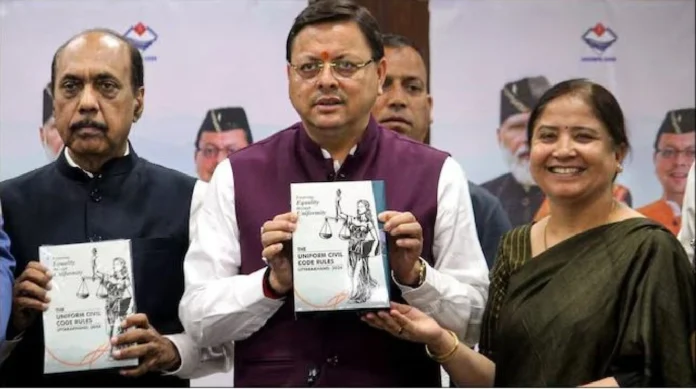The Uniform Civil Code (UCC) has its roots in Article 44 of the Indian Constitution, enshrined under the Directive Principles of State Policy. Drafted with the intent to secure justice, equality, and unity among citizens, the UCC was envisioned as a means to replace diverse personal laws with a singular legal framework. However, its non-enforceable nature meant that political, religious, and social challenges have long kept the UCC in legislative limbo.
Historically, attempts to implement the UCC faced significant opposition. For instance, during the drafting of the Constitution, Muslim representatives voiced concerns over the erosion of personal laws, while reformers like Dr BR Ambedkar advocated for its adoption to promote gender equality and secularism. Over time, landmark judgments—such as Mohd. Ahmed Khan vs Shah Bano Begum and Sarla Mudgal vs Union of India—highlighted the pressing need for a uniform legal framework to resolve discrepancies in marriage, inheritance, and divorce laws.
Yet, political hesitancy and community resistance led to a piecemeal approach. While the Hindu Code Bill (1955-56) reformed personal laws for Hindus, Buddhists, Sikhs and Jains, personal laws for Muslims and Christians largely remained untouched, creating disparities and often, legal ambiguities.
Uttarakhand’S UCC: Breaking New Ground
Under the leadership of Chief Minister Pushkar Singh Dhami, Uttarakhand has now implemented the UCC to address these disparities. This comprehensive legal reform standardizes laws governing marriage, divorce, inheritance, and adoption across all communities within the state. Proponents argue that the UCC will promote gender equality, strengthen national integration, and align society with constitutional aspirations.
The key provisions include:
• Gender Equality: Equal rights in marriage, divorce, and property distribution.
• Children’s Legitimacy: Safeguards to ensure legal recognition irrespective of circumstances of birth.
• Streamlined Processes: Digitalization of marriage registration and simplified inheritance laws.
The move has drawn comparisons with Goa, which follows the Portuguese Civil Code—a de facto UCC. However, Uttarakhand’s implementation is more ambitious, seeking to modernize archaic customs and address broader social inequities.
Judicial Endorsement And Broader Implications
The judiciary has long championed the UCC as a tool to foster national unity and eliminate gender discrimination. In Shah Bano’s case, the Supreme Court emphasized that a uniform code would resolve legal disparities across religions, while in Sarla Mudgal, it underscored the need to separate religion from secular lawmaking.
However, critics caution that imposing a uniform framework may inadvertently alienate minority communities, stoking fears of cultural assimilation. Some argue that while the UCC addresses inequality, it may fail to account for India’s rich diversity of traditions and practices.
Challenges And Opportunities
1. Social Reforms: The UCC marks significant progress in banning practices like polygamy and child marriages. However, further legislative action is needed to address the rights of LGBTQ+ individuals, including recognition of same-sex marriages.
2. Community Outreach: Building consensus among diverse communities is critical to avoid polarizing public opinion. NGOs and activists will play a vital role in bridging the gap between policy and societal acceptance.
3. National Integration: While the UCC seeks to create a unified legal framework, its implementation across states may face resistance, as seen in Assam, where the government has opted to wait for central legislation.
Analysis: The Road Ahead
The implementation of the UCC in Uttarakhand is both a bold experiment and a harbinger of potential national reform. By addressing issues of gender inequality and outdated customs, it lays the groundwork for a modern legal system. Yet, its success depends on how effectively the government balances the principles of equality with the sensitivities of India’s pluralistic society.
If the UCC gains broader acceptance, it could spark a wave of legal reforms across India, reshaping the socio-legal landscape and fostering greater national integration. Conversely, mishandling the discourse could deepen divisions and fuel identity-based politics.
Conclusion
Uttarakhand’s decision to implement the UCC has set a precedent for the nation. While the move has sparked hope for a more equal and unified India, it also underscores the complexities of governing a diverse society. As the country watches closely, the UCC’s success or failure will ultimately depend on how inclusively it is implemented and how sensitively it navigates India’s unique cultural fabric.
—By India Legal Bureau


